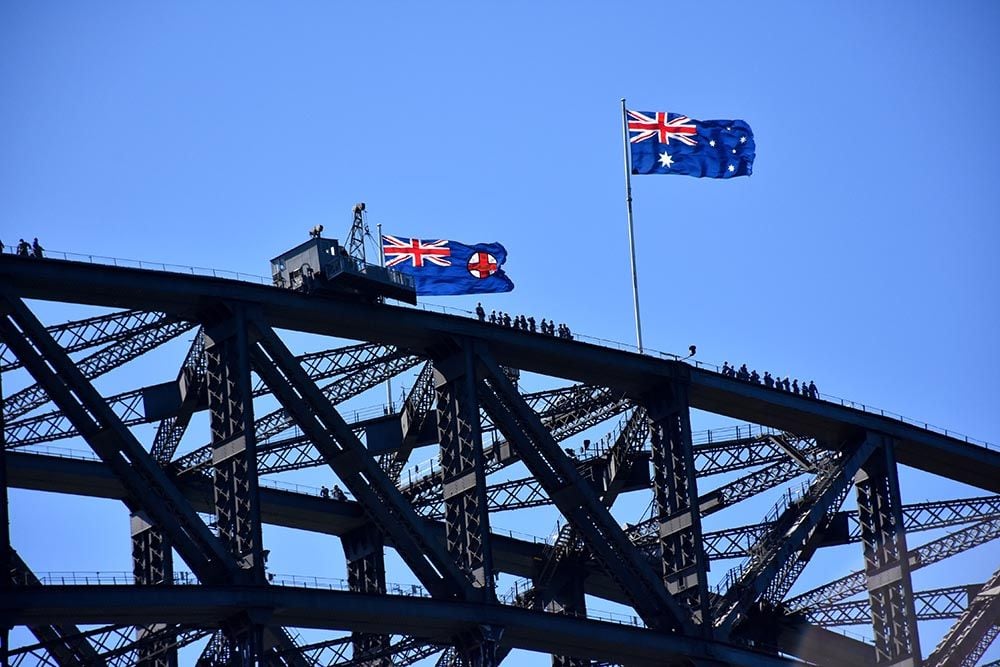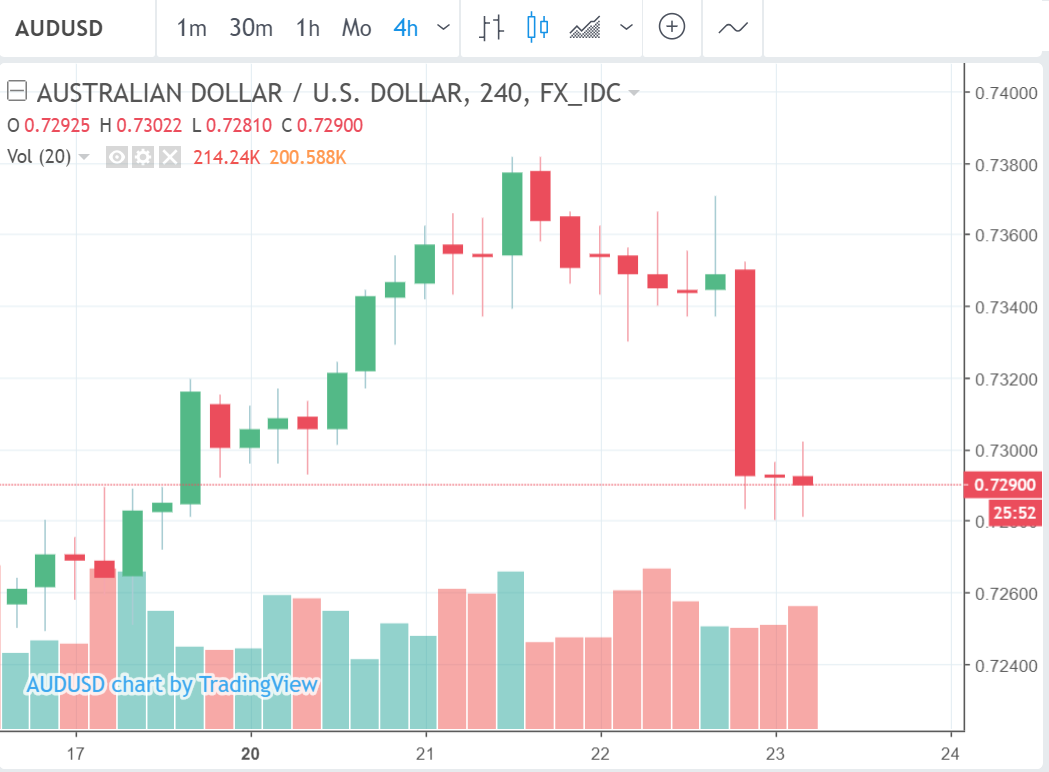Australian Dollar Slides in "Risk-off" Markets as Turnbull Fights for Survival
- Turnbull fatally wounded as populist uprising ramps up pressure.
- Broader trade fears resurface amid US-China Washington talks.
- AU-China relations becoming increasingly tense after Huawie snub.

Image © Desiree Caplas, Adobe Stock
The Australian Dollar was the worst performing G10 currency Thursday as Asian markets went into "risk off" mode ahead of US-China trade talks in Washington and as pressure mounts on Prime Minister Malcolm Turnbull to either resign or allow another confidence ballot.
"The start of the Chinese/US trade talks has given Asian currencies a risk-off feel overnight and the dollar is recovering from a week's falls," says Kit Juckes, chief currency strategist at Societe Generale.
Turnbull survived a confidence ballot warlier this week after calling one himself, although only by a narrow margin of 48-35. The ballot comes ahead of a general election that is expected to be held no later than May 2019, which has seen infighting grip the coalition amid a poor polling performance and following a series of scandals.
"Australian political uncertainties are likely to continue to weigh on AUD. Three cabinet members have resigned and have pledged support for Peter Dutton, who had failed in a leadership bid earlier this week. Pressure for another leadership vote has intensified," says Annette Beacher, chief Asia Pacific macro strategist TD Securities.

Above: AUD/USD rate shown at 4 hour intervals.
Although rebels in the Liberal Party have so-far failed to oust Turnbull this week, the PM has offered to hold another ballot himself if Peter Dutton, a Liberal politician vying for the leadership, can prove he has the numbers to win. This could potentially bring about the PM's downfall as soon as Friday. Ministers are already jumping from the PM's ship.
Reportedly-heightened tensions between Canberra and Beijing may also weigh further on the Aussie during the weeks ahead. Australia's government says it will not allow companies “likely to be subject to extrajudicial directions from a foreign government that conflict with Australian law” to participate in the roll-out of its 5G network, which was seen as a ban targeting Chinese companies.
"As mentioned earlier here, Australia and China diplomatic relations have been rather rocky and fragile lately and the latest decision by Australia here isn't going to help with that," says Justin Lowe, analyst at Forexlive.com. "While it hasn't escalated to extremely strained tensions between the two countries, it does continue to push the issue and makes for some uneasy times for investors banking on the Australian economy."
The Australian Dollar is particularly sensitive to all things China-related because the world's second largest economy is also the Australia's largest trade partner, buying the lion's share of its commodity exports. The "trade war" between the US and China is also a hot button issue for the Aussie and all economies dependent on China.
The AUD/USD rate was quoted 0.54% lower at 0.7293 Thursday while the Pound-to-Aussie rate was up 0.29% at 1.7646. The Aussie was also lower against all other G10 currencies.
Advertisement
Get up to 5% more foreign exchange by using a specialist provider to get closer to the real market rate and avoid the gaping spreads charged by your bank when providing currency. Learn more here




